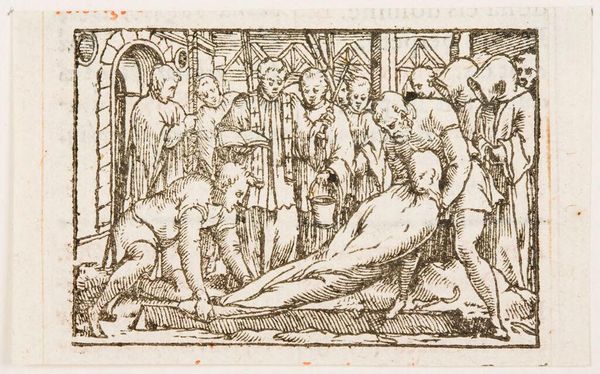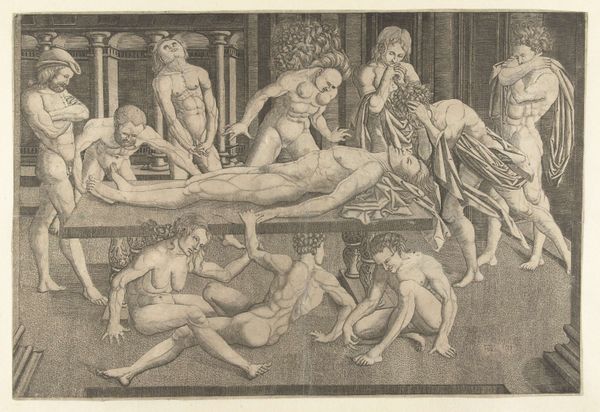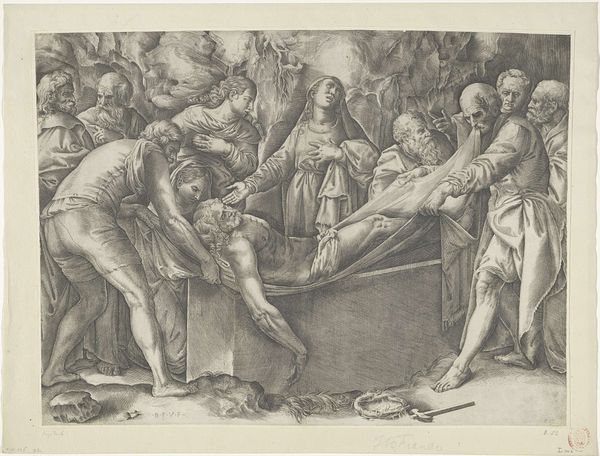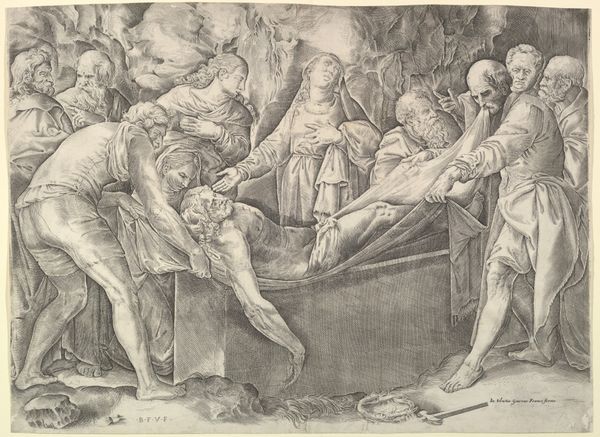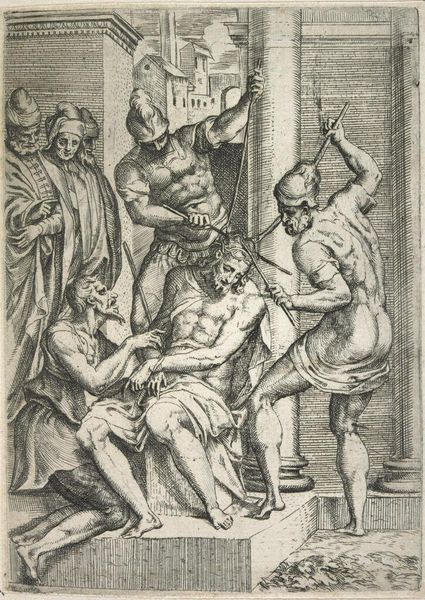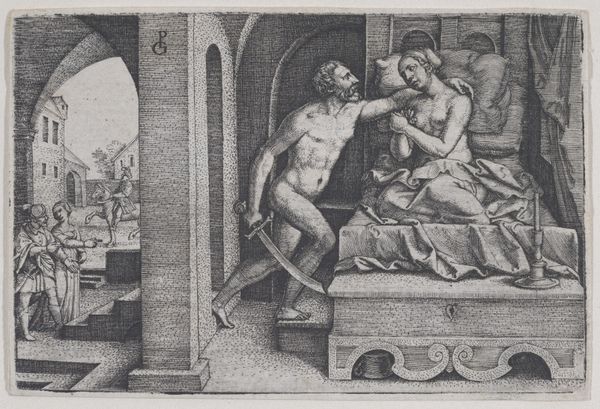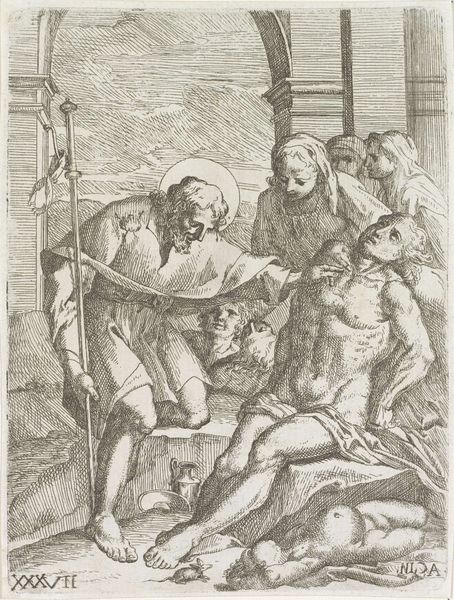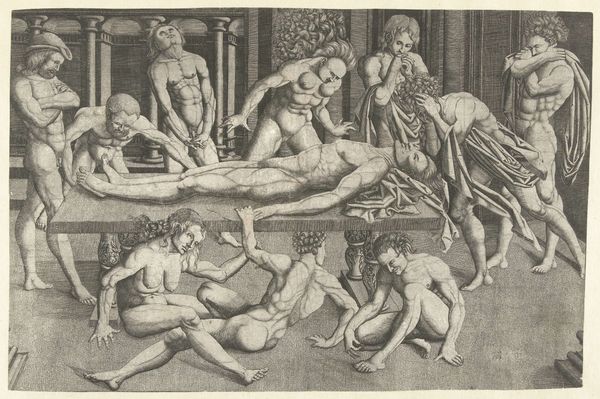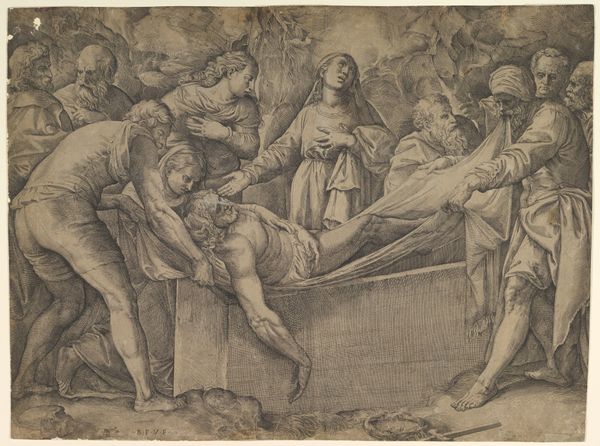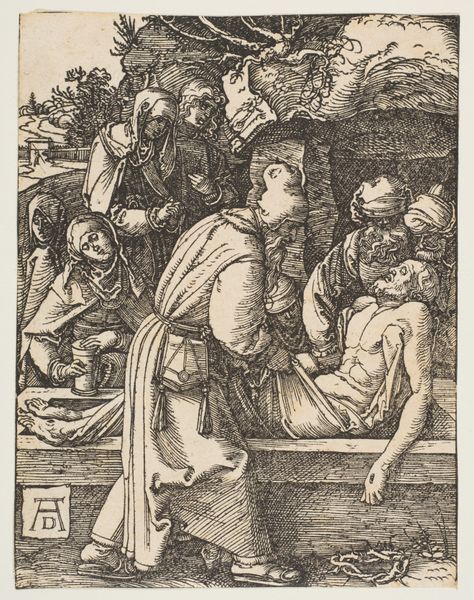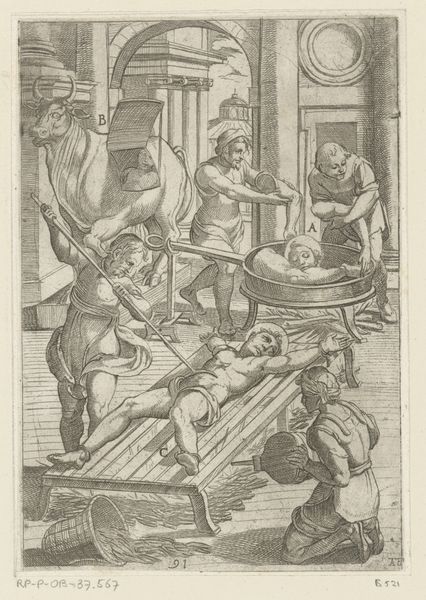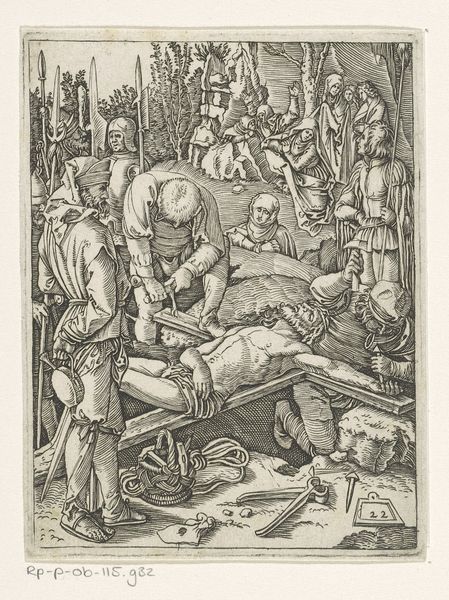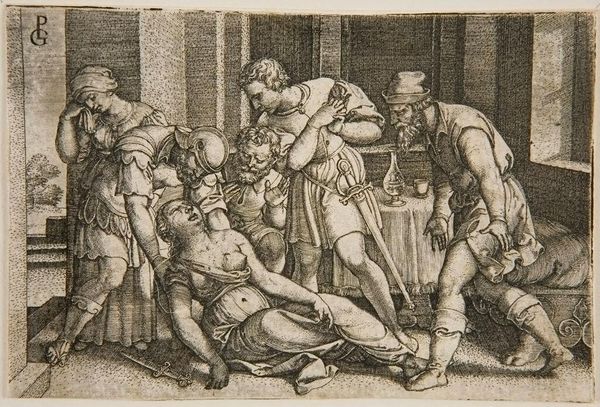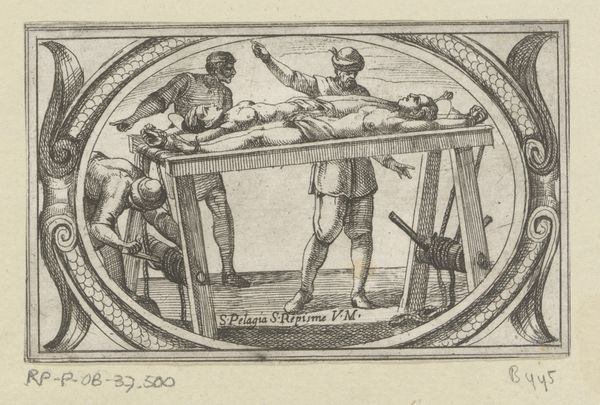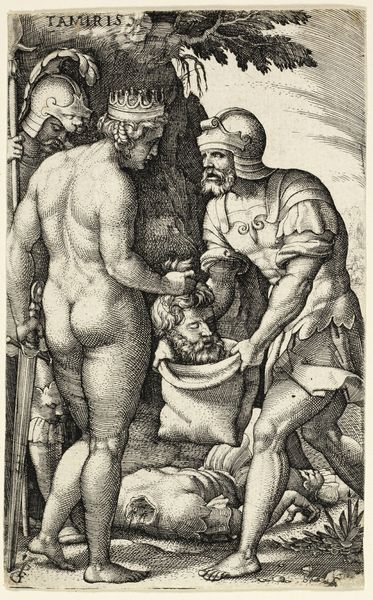
painting, oil-paint
#
portrait
#
medieval
#
narrative-art
#
painting
#
oil-paint
#
gothic
#
figuration
#
oil painting
#
12_15th-century
#
painting painterly
#
history-painting
#
facial portrait
#
portrait art
Dimensions: 40.3 x 40.8 x 0.5 cm
Copyright: Public Domain
Curator: Looking at Stefan Lochner's "Martyrdom of St. Bartholomew," executed after 1435, I'm struck by the intensity, the almost clinical depiction of such a gruesome act. What are your initial impressions? Editor: Chaos and meticulousness intertwined! The composition throws me – a flurry of characters in grotesque detail set against a gilded backdrop that speaks of reverence. Curator: Precisely. The gold background flattens the pictorial space, pushing the figures forward. Note how Lochner meticulously renders the textures, the sheen of the skin, the glint of the blades... it’s almost unsettling given the scene’s brutality. Editor: The blades themselves – each wielded with an unsettling nonchalance. And look at the variety of faces – cruelty, detached curiosity, even what appears to be professional concentration. This isn't just a painting of torture, it’s a psychological study in brutality, referencing well-known imagery and stories. The knives themselves seem a pointedly barbaric weapon, loaded with the weight of implied pain and suffering. Curator: Indeed. Lochner employs stark contrasts—the gold, which traditionally signifies divinity, jarringly juxtaposed with the raw realism of the martyrdom. The painting compels the viewer to confront conflicting symbolic values within a single pictorial plane. Consider also how the composition leads the eye through various planes of action: the preparation below, the intense central figures, and those observing above. Editor: It's a macabre theater, expertly staged. The symbols seem very literal here. The golden halo against this earthly butchery feels almost sarcastic. Do you think that contrast serves to underscore Bartholomew’s unwavering faith amidst unbearable pain? Curator: Undoubtedly. The contrasting formal qualities emphasize the symbolic core: a triumph of spirit over flesh. It is a devotional image and a representation of torture merged in one canvas, creating, shall we say, a peculiar tension. Editor: That tension, that formal unease is exactly what keeps drawing me back. The composition shouldn't work, the imagery is appalling, yet it has this ghastly magnetic power. Curator: Agreed. It is an effective interplay, achieving that curious emotional resonance we often find in Early Netherlandish painting. A stark rendering of power, faith, and violence. Editor: So in looking at this painting again I find a reflection on human endurance, or maybe just our dark fascinations.
Comments
No comments
Be the first to comment and join the conversation on the ultimate creative platform.
